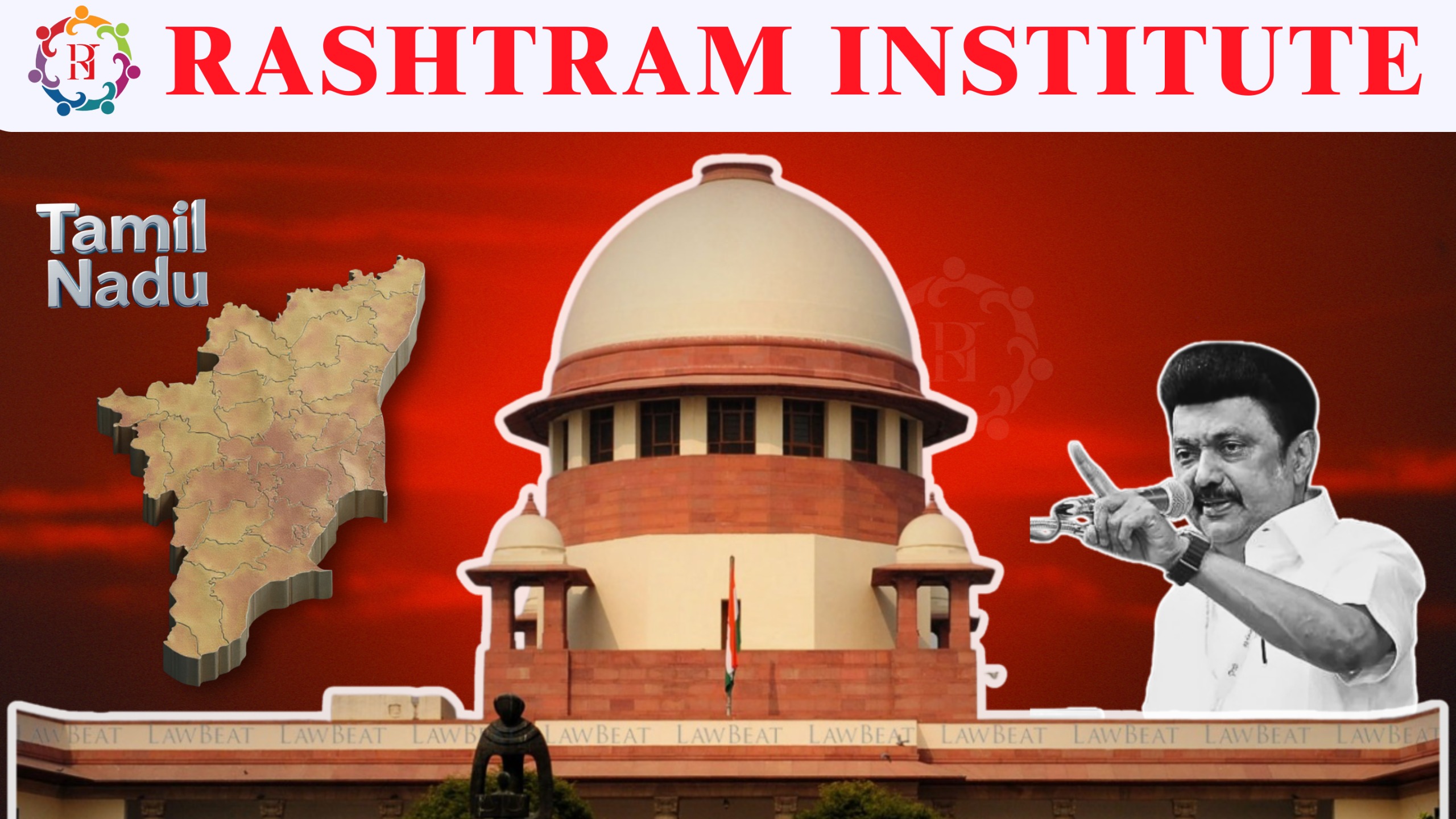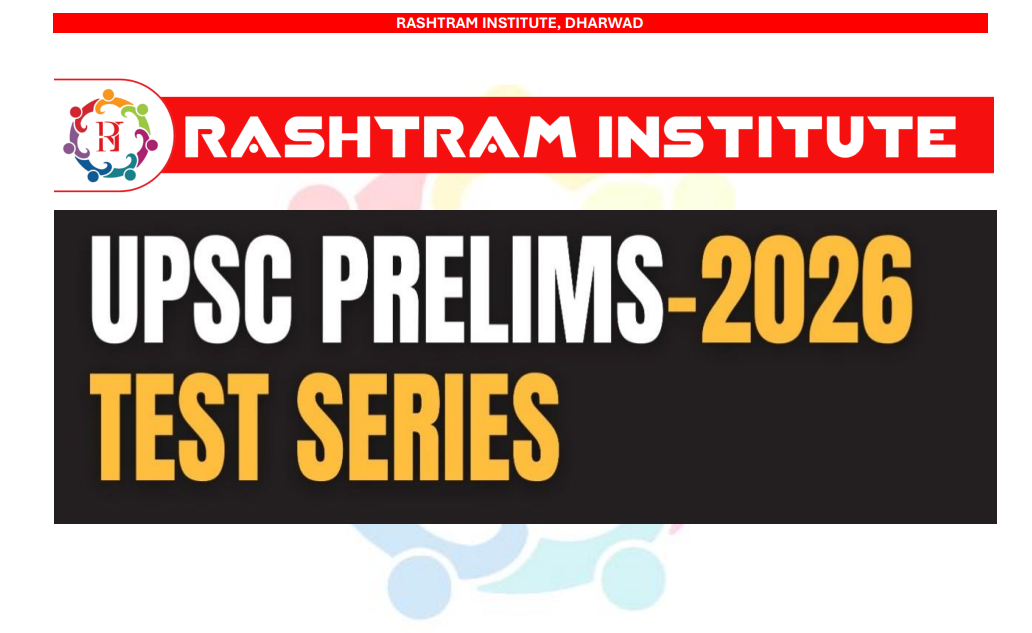Supreme Court’s Landmark Verdict on Governor’s Assent to Bills: Reasserting Constitutional Morality and Federal Balance
In a historic verdict that could reshape the relationship between the executive and legislative arms in India’s federal framework, the Supreme Court has ruled decisively on the constitutional duties of the Governor and President in matters concerning assent to state legislation. The judgment stems from a petition filed by the Tamil Nadu government, which highlighted prolonged inaction by the Governor on several Bills passed by the State Assembly.
This ruling is not merely a response to one state’s grievances but a vital reaffirmation of the principles of democratic governance, legislative supremacy, and responsible government enshrined in the Constitution.
Background of the Case
Between November 2020 and April 2023, the Tamil Nadu Legislative Assembly passed a total of 13 Bills. Surprisingly, 10 of these Bills either received no communication from the Governor or were returned without clear constitutional justification. Subsequently, the State Assembly re-passed these Bills without making any substantial changes. Instead of granting assent as required under Article 200 of the Constitution, the Governor reserved the re-enacted Bills for the consideration of the President.
This prolonged delay and refusal to act prompted the Tamil Nadu government to approach the Supreme Court, seeking judicial remedy against what it described as a violation of constitutional duty.
Key Takeaways from the Supreme Court Verdict
- Inaction by the Governor or President is Unconstitutional
The Court categorically ruled that the Constitution does not provide for either a “pocket veto” (indefinite withholding of assent) or an “absolute veto” in the hands of the Governor or the President. Articles 200 and 201 prescribe a clear framework for how Bills should be dealt with by the Governor and the President, and prolonged inaction amounts to a breach of constitutional responsibility.
Importantly, the Court noted that even though the Constitution does not prescribe a specific time frame for assent, an undue delay undermines the principles of parliamentary democracy and responsible government. In such cases, the aggrieved State may seek a writ of mandamus to compel action.
- Re-enacted Bills Cannot Be Reserved Again
The Court laid down an important principle regarding the re-passage of Bills. If the Governor withholds assent and returns a Bill to the State Assembly, and the Assembly passes it again without making material changes, the Governor must grant assent. The power to reserve such a Bill for the President’s consideration does not survive once the legislature reiterates its intent.
However, an exception was noted: if the Bill is substantially altered during the second passage, the Governor may then reserve it for the President under Article 200.
- Reasonable Timelines Mandated for Assent and Reservation
While the Constitution remains silent on exact timelines, the Court took a pragmatic and judicially innovative step by prescribing reasonable time limits to ensure legislative efficiency:
Within One Month:
- Governor must decide whether to assent, withhold assent, or reserve the Bill.
- If a Bill is re-enacted by the legislature, the Governor must act within a month.
- Reservation based on the advice of the Council of Ministers should also occur within this time frame.
Within Three Months:
- If the Governor intends to reserve a Bill against the advice of the Council of Ministers, this must be done within three months.
- The President is also expected to act on reserved Bills within three months, and any delay must be communicated with justification to the State.
These timelines are not constitutionally codified but serve as judicial benchmarks to ensure good governance and prevent executive arbitrariness.
- Presidential Assent Subject to Judicial Review
The Court went a step further in ensuring accountability at the highest level of the executive by holding that even the President’s decision to withhold assent to a State Bill is not immune from judicial scrutiny. If such a decision is found to be arbitrary, mala fide, or unconstitutional, it can be reviewed and potentially invalidated by the judiciary.
This reinforces the supremacy of constitutional norms over executive discretion and ensures that legislative will is not obstructed without justification.
- President Should Consult the Supreme Court Under Article 143
Another significant aspect of the ruling is the emphasis on consultative federalism. When the President reserves a Bill due to constitutional concerns, the Court held that the matter should be referred to the Supreme Court under Article 143, which empowers the President to seek the Court’s advisory opinion.
This provision serves two purposes:
- It brings constitutional clarity through judicial interpretation.
- It restricts the scope of executive discretion by ensuring judicial oversight.
Although the President is not strictly bound by the advisory opinion, any deviation must be backed by clearly articulated and constitutionally sound policy reasons.
Constitutional Provisions Revisited
- Article 200: Governs the Governor’s powers to assent, withhold, return, or reserve State Bills.
- Article 201: Covers the President’s powers regarding reserved Bills.
- Article 142: Grants the Supreme Court authority to pass orders to secure complete justice.
- Article 143: Allows the President to seek the Supreme Court’s opinion on constitutional questions.
Implications for Indian Federalism and Democracy
This verdict holds profound significance for Indian democracy. It reaffirms that:
- Elected legislatures are supreme in law-making within their domain.
- The role of the Governor is largely ceremonial, and not that of a parallel executive authority.
- Arbitrary delays or executive discretion in granting assent are antithetical to the principles of responsible government.
- Judicially prescribed timelines ensure prompt and predictable governance.
Above all, the judgment is a powerful reminder that the Constitution is not merely a legal document but a living framework, demanding fidelity to democratic values and institutional responsibility.
To conclude, the Supreme Court’s ruling is a decisive intervention to prevent misuse of constitutional offices for political or bureaucratic obstruction. By curbing discretionary powers, reinforcing timelines, and reasserting judicial oversight, the Court has upheld the spirit of cooperative federalism and safeguarded the functional autonomy of State legislatures.
This landmark verdict is not just a legal precedent – it is a vital corrective to ensure that India’s constitutional machinery works in harmony with its democratic ethos.
Rashtram Institute in Dharwad is the best in class providing for Prelims cum Mains Coaching for UPSC and KAS examination. Only institute in North-Karnataka to approach the exam with prelims-cum-mains approach
In a historic verdict that could reshape the relationship between the executive and legislative arms in India’s federal framework, the Supreme Court has ruled decisively on the constitutional duties of the Governor and President in matters concerning assent to state legislation. The judgment stems from a petition filed by the Tamil Nadu government, which highlighted prolonged inaction by the Governor on several Bills passed by the State Assembly.
This ruling is not merely a response to one state’s grievances but a vital reaffirmation of the principles of democratic governance, legislative supremacy, and responsible government enshrined in the Constitution.
Background of the Case
Between November 2020 and April 2023, the Tamil Nadu Legislative Assembly passed a total of 13 Bills. Surprisingly, 10 of these Bills either received no communication from the Governor or were returned without clear constitutional justification. Subsequently, the State Assembly re-passed these Bills without making any substantial changes. Instead of granting assent as required under Article 200 of the Constitution, the Governor reserved the re-enacted Bills for the consideration of the President.
This prolonged delay and refusal to act prompted the Tamil Nadu government to approach the Supreme Court, seeking judicial remedy against what it described as a violation of constitutional duty.
Key Takeaways from the Supreme Court Verdict
- Inaction by the Governor or President is Unconstitutional
The Court categorically ruled that the Constitution does not provide for either a “pocket veto” (indefinite withholding of assent) or an “absolute veto” in the hands of the Governor or the President. Articles 200 and 201 prescribe a clear framework for how Bills should be dealt with by the Governor and the President, and prolonged inaction amounts to a breach of constitutional responsibility.
Importantly, the Court noted that even though the Constitution does not prescribe a specific time frame for assent, an undue delay undermines the principles of parliamentary democracy and responsible government. In such cases, the aggrieved State may seek a writ of mandamus to compel action.
- Re-enacted Bills Cannot Be Reserved Again
The Court laid down an important principle regarding the re-passage of Bills. If the Governor withholds assent and returns a Bill to the State Assembly, and the Assembly passes it again without making material changes, the Governor must grant assent. The power to reserve such a Bill for the President’s consideration does not survive once the legislature reiterates its intent.
However, an exception was noted: if the Bill is substantially altered during the second passage, the Governor may then reserve it for the President under Article 200.
- Reasonable Timelines Mandated for Assent and Reservation
While the Constitution remains silent on exact timelines, the Court took a pragmatic and judicially innovative step by prescribing reasonable time limits to ensure legislative efficiency:
Within One Month:
- Governor must decide whether to assent, withhold assent, or reserve the Bill.
- If a Bill is re-enacted by the legislature, the Governor must act within a month.
- Reservation based on the advice of the Council of Ministers should also occur within this time frame.
Within Three Months:
- If the Governor intends to reserve a Bill against the advice of the Council of Ministers, this must be done within three months.
- The President is also expected to act on reserved Bills within three months, and any delay must be communicated with justification to the State.
These timelines are not constitutionally codified but serve as judicial benchmarks to ensure good governance and prevent executive arbitrariness.
- Presidential Assent Subject to Judicial Review
The Court went a step further in ensuring accountability at the highest level of the executive by holding that even the President’s decision to withhold assent to a State Bill is not immune from judicial scrutiny. If such a decision is found to be arbitrary, mala fide, or unconstitutional, it can be reviewed and potentially invalidated by the judiciary.
This reinforces the supremacy of constitutional norms over executive discretion and ensures that legislative will is not obstructed without justification.
- President Should Consult the Supreme Court Under Article 143
Another significant aspect of the ruling is the emphasis on consultative federalism. When the President reserves a Bill due to constitutional concerns, the Court held that the matter should be referred to the Supreme Court under Article 143, which empowers the President to seek the Court’s advisory opinion.
This provision serves two purposes:
- It brings constitutional clarity through judicial interpretation.
- It restricts the scope of executive discretion by ensuring judicial oversight.
Although the President is not strictly bound by the advisory opinion, any deviation must be backed by clearly articulated and constitutionally sound policy reasons.
Constitutional Provisions Revisited
- Article 200: Governs the Governor’s powers to assent, withhold, return, or reserve State Bills.
- Article 201: Covers the President’s powers regarding reserved Bills.
- Article 142: Grants the Supreme Court authority to pass orders to secure complete justice.
- Article 143: Allows the President to seek the Supreme Court’s opinion on constitutional questions.
Implications for Indian Federalism and Democracy
This verdict holds profound significance for Indian democracy. It reaffirms that:
- Elected legislatures are supreme in law-making within their domain.
- The role of the Governor is largely ceremonial, and not that of a parallel executive authority.
- Arbitrary delays or executive discretion in granting assent are antithetical to the principles of responsible government.
- Judicially prescribed timelines ensure prompt and predictable governance.
Above all, the judgment is a powerful reminder that the Constitution is not merely a legal document but a living framework, demanding fidelity to democratic values and institutional responsibility.
To conclude, the Supreme Court’s ruling is a decisive intervention to prevent misuse of constitutional offices for political or bureaucratic obstruction. By curbing discretionary powers, reinforcing timelines, and reasserting judicial oversight, the Court has upheld the spirit of cooperative federalism and safeguarded the functional autonomy of State legislatures.
This landmark verdict is not just a legal precedent – it is a vital corrective to ensure that India’s constitutional machinery works in harmony with its democratic ethos.
Rashtram Institute in Dharwad is the best in class providing for Prelims cum Mains Coaching for UPSC and KAS examination. Only institute in North-Karnataka to approach the exam with prelims-cum-mains approach
Rashtram Institute
Rashtram Institute for Civil Services is destined to provide you the best curated content for civil services examination on both mains and prelims perspective. Follow us for more such content….
To register, call: 9964152111
Seats are filling fast — register today and step into the exam hall with full confidence!
Address: Jaynagar last, Bus Stop, Saptapur, Dharwad, Karnataka 580001





